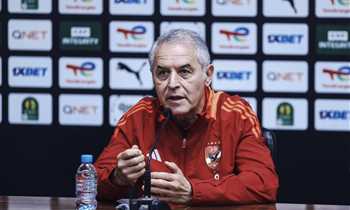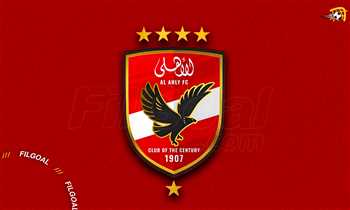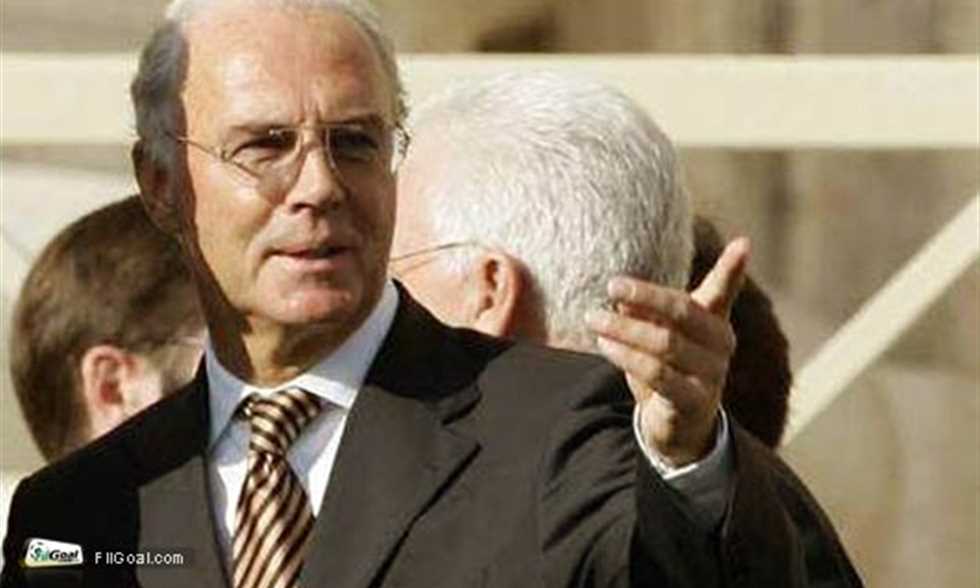
Franz Beckenbauer (West Germany):
Beckenbauer participated in three World Cup finals as a player and two as a coach, earning a medal on every occasion.
The suave defender, who captained and managed West Germany to World Cup titles in 1974 and 1990 respectively, set a new meaning for the sweeper (libero) position with his attack-minded approach, gallant breaks and cool attitude.
The "Kaiser", as he is usually referred to, played his trade for German giants Bayern Munich with whom he won German league and cup title in addition to a trio of European championships.
Beckenbauer's World Cup career witnessed several highlights, starting with a brace on his debut against Switzerland in the 1966 tournament, where he was only 21.
Beckenbauer gained a reputation for being a stern midfielder when he featured in the 1970 semi-final against Italy with a dislocated shoulder.
He capped his World Cup career by captaining West Germany to the 1974 World Cup trophy on home soil.
Johan Cruyff (Holland):
Cruyff is a quick, skillful, intelligent, elegant, fleet-footed sensation who came short of a World Cup title and had to settle for second place in 1974.
His great runs, perfectly timed super passes, great eye for goal and his ability to lead and lift the whole team earned him the nickname "Flying Dutch".
Despite playing in one World Cup, Cruyff won the heart of football fans worldwide with his style of play that somehow resembled that of the legendary Pele.
He captained the Dutch team known for its "total football" tactic that overwhelmed opponents in the 1974 finals and ousted giants like Brazil and Argentina before falling to hosts Germany in the final.
Cruyff began his football career with Dutch side Ajax Amsterdam with whom he won 6 Dutch league and 4 domestic cup titles and 3 European championships.
He then moved to Spain where he helped Barcelona win the league title for the first time in 14 years.
Garrincha (Brazil):
Dubbed the "little bird", Garrincha's story is that of ambition and perseverance. He was born with a defect and had to undergo an operation that left him with one leg six centimeters shorter than the other.
However, Garrincha did not give in to his handicap or the clamours of those who called on him to give up a career as a professional footballer.
Garrincha went on to become one of Brazil's greatest forwards with his ingenuity, exhilarating finishes and, surprisingly, his ground-breaking pace.
He featured for Brazil in the1958 finals and won the trophy with the Seleção. But his finest hour came in the 1962 finals when he was thrown in the fray to replace the injured Pele.
Garrincha's delightful style of play, that can be frustrating for any defender, earned him the player of the tournament award and joint top-scorer with four goals, in addition to his second World Cup title.
Garrincha's final World Cup appearance was in the 1966 finals in England. However, Brazil's failure to retain the title forced him to call it quits on his international career.
Diego Maradona (Argentina):
The World Cup finals will always be synonymous with Maradona as they have witnessed both his highest and lowest points.
Maradona, along with Pele, is the most prominent and gifted footballer in history.
He began his career with Argentinos Juniors before blessing the field with Boca Juniors, Barcelona and Napoli in record-breaking deals.
The peerless player became the youngest player to feature for Argentina's national team at
نرشح لكم
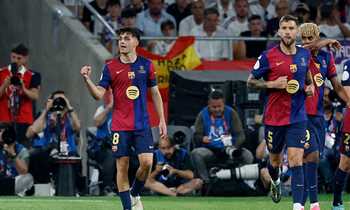
 الثالثة بالثلاثة.. ضربة كوندي تسقط ريال مدريد وتمنح برشلونة الكأس الـ 32
الثالثة بالثلاثة.. ضربة كوندي تسقط ريال مدريد وتمنح برشلونة الكأس الـ 32
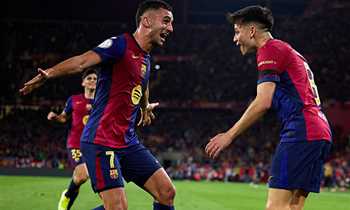 انتهى الكلاسيكو - برشلونة (3)-(2) ريال مدريد
انتهى الكلاسيكو - برشلونة (3)-(2) ريال مدريد
 ساهم للمباراة الثانية تواليا.. كوكا يسجل لـ لو هافر في تعادله مع موناكو
ساهم للمباراة الثانية تواليا.. كوكا يسجل لـ لو هافر في تعادله مع موناكو
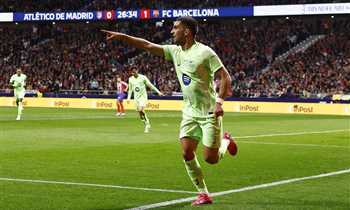 تشكيل برشلونة - تير شتيجن على مقاعد البدلاء.. وتوريس يقود الهجوم في الكلاسيكو
تشكيل برشلونة - تير شتيجن على مقاعد البدلاء.. وتوريس يقود الهجوم في الكلاسيكو
 تشكيل ريال مدريد - سيبايوس أساسي ومبابي على مقاعد البدلاء ضد برشلونة
تشكيل ريال مدريد - سيبايوس أساسي ومبابي على مقاعد البدلاء ضد برشلونة
 وولفرهامبتون يرقص على أحزان ليستر.. وبرايتون يعاقب وست هام
وولفرهامبتون يرقص على أحزان ليستر.. وبرايتون يعاقب وست هام

 خطوة على حلم كين الذي لن يحضره.. بايرن يفوز على ماينز ويقترب من الدوري
خطوة على حلم كين الذي لن يحضره.. بايرن يفوز على ماينز ويقترب من الدوري













 في الجول يكشف موقف اتحاد الكرة من تغيير موعد نهائي كأس مصر
في الجول يكشف موقف اتحاد الكرة من تغيير موعد نهائي كأس مصر
